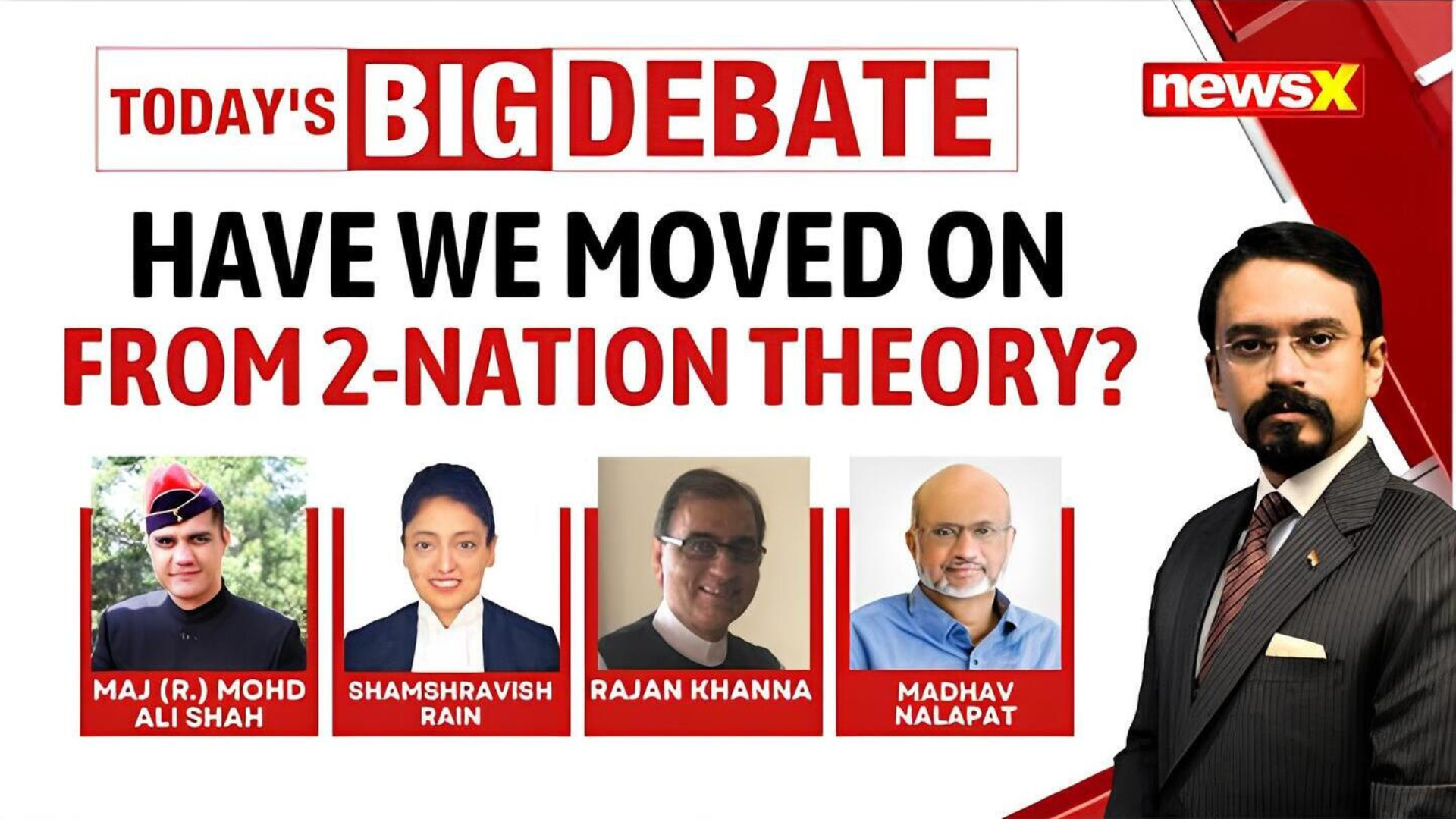In the ongoing political drama in India, attention is focused on Ayodhya, where the Prime Minister and BJP leader are organizing a massive rally. A debate on News X, led by Editor-in-Chief Rishabh Gulati, centred on PM Narendra Modi and the BJP’s efforts to secure another term. The discussion highlighted political polarization, accusing both the BJP and Congress of exploiting communal divisions. Key questions arose: Has India transcended the Hindu-Muslim divide? Have fears of Muslim persecution materialized under the BJP? Is India more or less communally tense post-Ram Mandir construction? Real-life experiences of Muslims accessing government schemes were emphasized, questioning the necessity of a Muslim quota versus broader development goals.
Joining the debate were distinguished voices including Major Dr Mohd Ali Shah, Defense Expert; Shamshravish Rein, Supreme Court Lawyer; Rajan Khanna, author; Madhav Nalapat, Editorial Director of The Sunday Guardian; and the host, Rishabh Gulati.
WATCH THE FULL DEBATE HERE:
Rishabh Gulati questions whether objectivity can be maintained given the ongoing major exercise of voting. He ponders the exact reasoning behind people’s votes, acknowledging that this may remain unknown until the results are revealed on June 4th. However, he asks for subjective assessments on whether India is moving closer or further away from the assumption imposed by the British in 1905 that India comprises two separate nations based on religion: one of Hindus and one of Muslims.
Major Dr. Mohd Ali Shah, a Defense Expert, reflects on the lingering pain of the 1947 partition, noting that it has taken generations to heal. He emphasizes that he does not view Indians as Hindus or Muslims but rather as Indians first and foremost. Shah asserts that national identity takes precedence over religion, caste, creed, or region. He criticizes the British policy of divide and rule, which exploited divisions among Indians. Shah also mentions past tensions, such as the 2002 riots during Prime Minister Modi’s tenure as Chief Minister of Gujarat, acknowledging that wounds have healed over time.
Shah proudly identifies as Indian before Muslim and emphasizes the unity and patriotism of Muslims in India. He highlights his connection to the country, with his forefathers buried in Uttar Pradesh, underscoring his deep-rooted attachment to India. In conclusion, Shah expresses optimism about India’s future, emphasizing the enduring truth of Indian unity.
Moving on to the next guest, Shamshravish Rein, a Supreme Court Lawyer. Editor-in-Chief Rishabh Gulati raises a pertinent question about the enduring impact of the two-nation theory, which was created 80 years ago. He points out that politicians often capitalize on polarization during elections, with the BJP accused of polarizing tactics, while the opposition also engages in such strategies. Gulati draws attention to significant developments in Ayodhya, surpassing even major religious sites in terms of tourist visits, leading to economic benefits for the region. He then poses a similar question to Ms Rein, asking if India has moved further away from the notion propagated by Lord Ken that Bengal needed to be partitioned due to the inability of Hindus and Muslims to coexist.
Shamshravish Rein refutes the idea of Hindus and Muslims being unable to live together, emphasizing their coexistence throughout history. She criticizes the government’s continued focus on religious polarization, labelling it as shameful and stating that such rhetoric perpetuates fear and division among communities. Rein highlights the ongoing assumption by politicians that people are susceptible to polarization, despite societal cohesion and unity.
Continuing the discussion, Gulati mentions past fear-mongering about communal strife under a Hindu nationalist government, which has not materialized over the past decade. He questions whether the worst fears have been realized in light of India’s political landscape.
Rajan Khanna, an author, responds, and Rishabh asks whether India is experiencing increased communal tension amidst the current high-stakes political season. He highlights the stress and stakes involved in the ongoing political activities, with careers and reputations hanging in the balance. Rishabh questions whether the construction of the Ram Mandir has intensified communal tensions or alleviated them.
In response, Rajan Khanna shares historical context, tracing back to the roots of the two-nation theory and the events leading up to it, emphasizing the cultural significance of the Ram Mandir. He refers to historical instances of communal strife but suggests that cultural nationalism unites people across religious lines. However, when directly asked about the current communal tension in India, Khanna acknowledges its existence, attributing it to various internal factors.
Rishabh then redirects the focus back to the present, seeking confirmation on whether there is indeed communal tension in the country. Khanna concurs, affirming that communal tension exists in India due to a multitude of reasons, both internal and external.
Professor Madhav Nalapat, Editorial Director of The Sunday Guardian, offered a nuanced perspective, emphasizing the need to transcend religious identities for a unified national consciousness. Nalapat’s reflections on the peaceful acceptance of the Ram Temple by the Muslim community underscored the potential for historical reconciliation to mitigate communal tensions.
The debate underscored the complex interplay between politics, history, and communal relations in India. As the country navigates through a high-stakes political season, the discourse on communalism remains as pertinent as ever. While historical wounds may linger, the voices advocating for unity, inclusivity, and national cohesion offer hope for a future where communal harmony prevails over divisive narratives.
In conclusion, the debate on News X highlighted key issues facing India, from communal tensions to political strategies. As the country prepares for elections, it’s essential to address these challenges by fostering unity and inclusivity. Learning from history and embracing diversity are vital steps towards building a stronger and more harmonious society. By prioritizing dialogue and understanding across communities, India can move towards a future where every citizen feels valued and heard. Despite the complexities, there’s hope for a brighter tomorrow, where shared values of tolerance and respect prevail. Let’s work together towards an India that celebrates its diversity and stands as a beacon of unity for the world.





